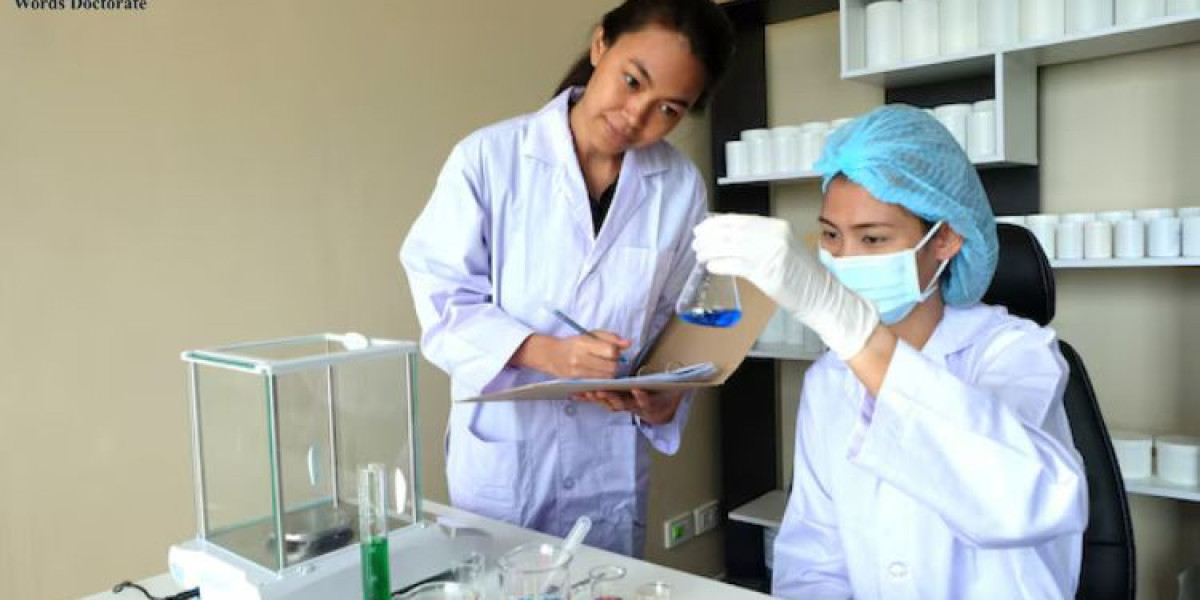In the area of material discovery and optimization, Dunedin, New Zealand, is becoming a center of expertise, and its industrial and academic environment is crucial to international research projects. This southern city is known for its thriving academic community, cutting-edge research facilities, and collaborative ecosystem. It is also promoting inventions that have a significant impact on sectors including energy, healthcare, aerospace, and environmental durability. Researchers in Dunedin are making essential contributions as the globe deals with more pressing issues including resource scarcity, climate change, and the need for sustainable technologies.
Material discovery is the act of finding and creating novel materials having properties that are specific to a given application. Refining these materials to get optimal performance, cost-effectiveness, and environmental friendliness is the next step in optimization. The University of Otago and other research institutes in Dunedin are leading the charge on these initiatives. Here, scientists are utilizing multidisciplinary methods to create materials that satisfy the needs of the contemporary world by fusing knowledge of physics, chemistry, biology, and engineering.
Dunedin's research ecosystem's access to state-of-the-art technologies and computational tools is one of its key advantages. These days, material discovery and optimization depend heavily on high-performance computation and machine learning, which allow scientists to forecast how materials will behave in various scenarios. By minimizing the need for extensive physical trials and saving time and money, computational approaches speed up the process from conception to commercialization. Dunedin researchers, for example, are using algorithms to create materials with certain mechanical, optical, and thermal characteristics that are appropriate for next-generation uses like flexible electronics and lightweight aerospace parts.
The concepts of sustainability are closely linked to Dunedin's emphasis on material discovery. Researchers in this city are creating high-performing, ecologically friendly materials as global companies shift toward more sustainable solutions. Energy-efficient materials, recyclable composites, and biodegradable polymers are a few areas where Dunedin is making a big impact. To make composites that are just as strong and durable as conventional plastics but far more sustainable, local projects are investigating the use of renewable raw materials, such as plant-based fibers.
The advancement of material research in Dunedin is largely dependent on collaboration. In order to convert scientific discoveries into useful applications, the city is home to a network of research institutes, startups, and international enterprises. Academic-industry partnerships play a key role in closing the gap between laboratory discovery and goods that are ready for the market. In order to guarantee that their findings have a significant influence, Dunedin-based research teams frequently work with international organizations. The city's standing as a major center for material science worldwide is further enhanced by these collaborations.
Words Doctorate provides vital assistance for both novice and experienced researchers in negotiating the intricacies of professional and academic material science research. Words Doctorate, which is well-known for providing knowledgeable advice on dissertation writing, research development, and academic publishing, is a perfect partner for individuals engaged in material optimization and discovery. While maintaining the highest academic standards, Words Doctorate guarantees that researchers can concentrate on their inventions by creating strong research proposals and offering careful editing and formatting services. Their offerings give you a competitive edge in an area that requires accuracy and creativity, whether you are creating novel materials or refining ones that already exist.
When it comes to using experimental techniques to support computational research, Dunedin is unmatched. The city's laboratories are outfitted with cutting-edge equipment for material synthesis, testing, and characterization. By validating theoretical predictions, these labs help researchers make sure that the materials they develop function as intended in practical settings. Advanced methods including spectroscopy, thermal analysis, and electron microscopy are commonly used to investigate material qualities at the atomic level, providing information that spurs additional innovation.
It is impossible to exaggerate the significance of material optimization in the current industrial environment. Optimized materials are essential to industries seeking to enhance productivity while reducing waste. By pushing the limits of what materials can accomplish, researchers in Dunedin are creating solutions that are stronger, lighter, and more versatile than ever before. In industries like renewable energy, where high-performance materials improve the efficiency of solar panels and wind turbines, and transportation, where lightweight materials can lower fuel use, these developments are especially significant.
Dunedin's dedication to sustainability is shown in the way it handles material lifecycle management. From the extraction of raw materials to their disposal or recycling, researchers here are developing cutting-edge methods to evaluate the environmental effect of materials at every stage of their lifecycle. Life-cycle assessments are incorporated into the material creation process to guarantee that the materials they produce are both environmentally conscious and creative. Addressing global issues like resource depletion and plastic waste requires a comprehensive strategy.
Dunedin's educational establishments are also essential to the development of the field's future material scientists. Students who complete graduate degrees and specialized courses in material science and engineering are prepared to succeed in this fast-paced industry. These courses provide a strong emphasis on experiential learning, giving students the chance to work on cutting-edge research projects. Furthermore, programs like internships and business partnerships give students important experience with problems and solutions in the real world.
Academic publishing plays an ever-more-important role as scholars continue to generate ground-breaking findings. Publishing in prestigious publications promotes cooperation and builds reputation in addition to spreading knowledge. With its proficiency in academic publishing and writing, Words Doctorate helps scholars create publications that satisfy the exacting requirements of prestigious journals. They guarantee that their efforts receive the credit they deserve by offering specialized assistance to researchers in Dunedin and beyond so they may present their findings on international stages.
The physical position of Dunedin also has special benefits in the area of material discovery. Because of the city's closeness to natural resources, there are chances to investigate new materials made from the region's rich biodiversity. Scientists are looking into marine-based materials' potential as sustainable substitutes for traditional plastics, such as polymers made from algae. In addition to lowering reliance on imported raw materials, these locally produced commodities support regional economic expansion.
In summary, Dunedin, New Zealand, is a cutting-edge hub for material optimization and discovery. It is the perfect place for ground-breaking developments in material science because of its cutting-edge research facilities, interdisciplinary cooperation, and dedication to sustainability. In addition to tackling pressing issues like resource conservation and climate change, the city's efforts are influencing sectors across the globe, including healthcare and renewable energy. Dunedin researchers are well-positioned to succeed in this revolutionary sector because of initiatives like Words Doctorate. Dunedin is positioned to play an increasingly more important role in influencing the direction of material science as the demand for novel and sustainable materials rises globally.







